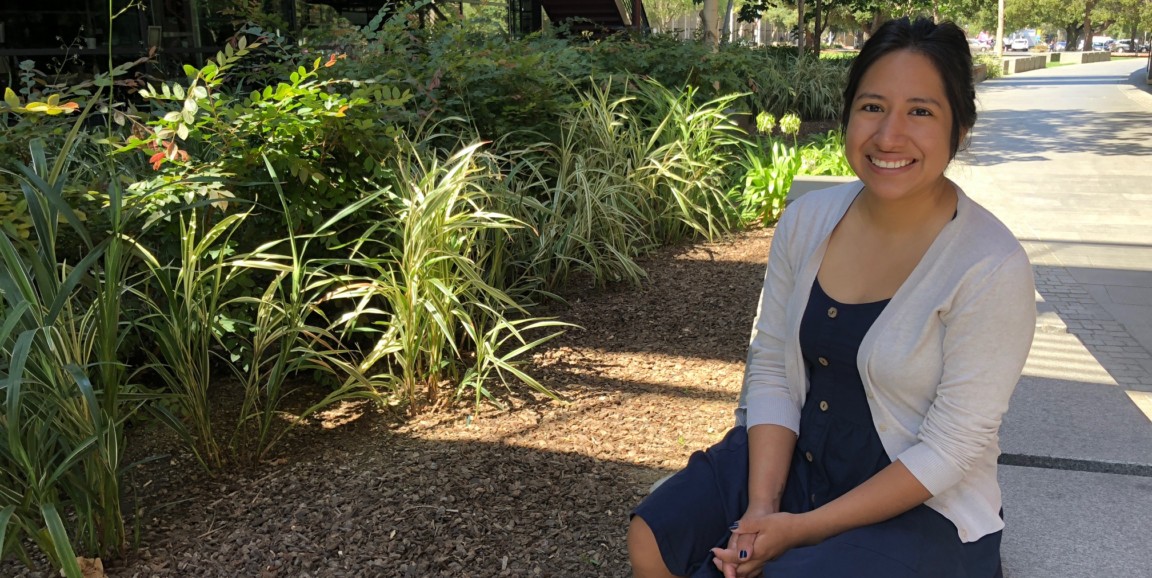When I think of neuroscience, I picture the brain, or at least the spine. The gut, however, doesn't come to mind. But the neural circuitry of the gut, known as the enteric nervous system, is the focus of the research of Beatriz Robinson, a second-year graduate student in neuroscience who is also pursuing a master of science in medicine. I sat down with Robinson, who is from Nevada, to learn more about her experiences in science and beyond.
Why did you go into science?
I had a really awesome high school biology teacher who piqued my interest. Science seemed like a fascinating world that was constantly changing and I really liked that.
Once I started getting into neuroscience, it really settled in that there’s so much untapped ground for scientists to discover in the field, and that motivates me.
What are you working on today?
My work particularly focuses on searching for regional markers that we can use to target specific areas of the GI tract, like the stomach, small intestine, and colon. We currently don’t have those readily available, and ultimately the goal would be to target the neurons in those areas.
What is a typical day in the lab like?
I come to lab, get a cup of coffee, and catch up on image analysis from past days. I figure out what other experiments need to be done. Then, I start setting up for the next set of experiments. I’ll go check on my mice. Every day is very different in the lab. Even if I’m doing the same technique, it’s always a different experience.
What is the biggest challenge in your field right now?
A lot is still unknown on the enteric nervous system. Everyone talks about GI problems, but few people go on to think that neurons are involved and the basic biology of it.
What is the most frustrating?
Your projects take a lot longer than you expect. You’re super excited but then results take weeks. In reality you are accomplishing things, you just have to be patient.
Do you have advice for future scientists?
It’s important to realize that grad school is a lot more than being in the lab and doing research. I mean, I see my lab mates more than my boyfriend! So being surrounded by people with the same energy and excitement as you can really foster your growth.
Also, follow your passions. If you also have a passion that is outside of science – foster that. You never know when they’ll intersect and when they do, then you bring this different perspective to your research that can make a good thing even better!
For instance: I love inventing, taking things apart and putting them back together. And it helps me in lab immensely.
Do you have a favorite scientist?
Katherine Johnson, PhD. She just turned 100, and was one of the mathematicians heavily involved in NASA. Incredibly inspiring how she managed having a science career, dealing with segregation, and having a personal life. Not only as a woman, but as a black woman at that time.
How do you unwind?
Lately, I’ve been doing a lot of gardening and landscaping. I love herbs, so my boyfriend and I now make it a hobby to grow herbs and garden together.
Podcast? Music?
I’m a big audiobook person. The past month I’ve been listening to all of the Harry Potter books. I actually haven’t read the books until now. I just discovered last year I have dyslexia.
Also, The History Chicks podcast. It’s two women that talk about important women from history. Cool to hear about inspiring women who do some amazing things.
What do you want to learn or know how to do that you don’t now?
3D modeling and image modeling. I’d like to be able to visualize the entire mesh network of the neurons I study.
And something "non-sciencey": Composing music. If I wasn’t a scientist, I think I would have loved to go into movie score compositions.
What is your ultimate career goal?
Biotechnology consulting. I really like being able to listen to people’s ideas and take them and run with them, and act like a sound board for others. Being able to sit, talk, and hash out brand new ideas is exciting to me.
Photo by Roxanne Ohayon




